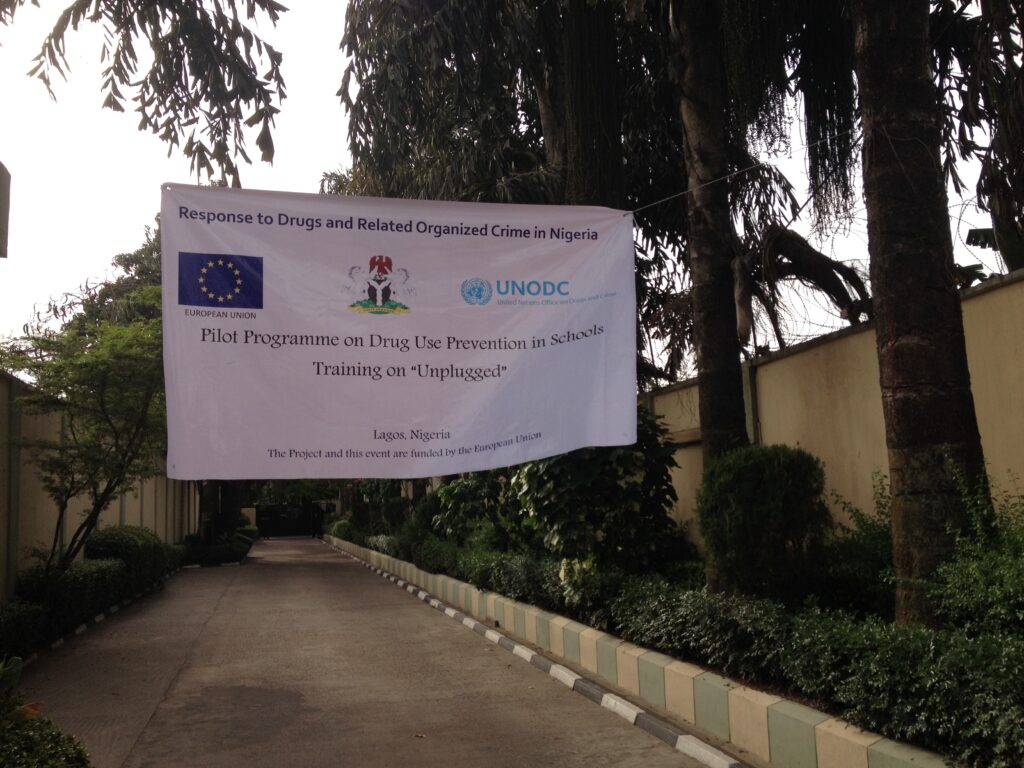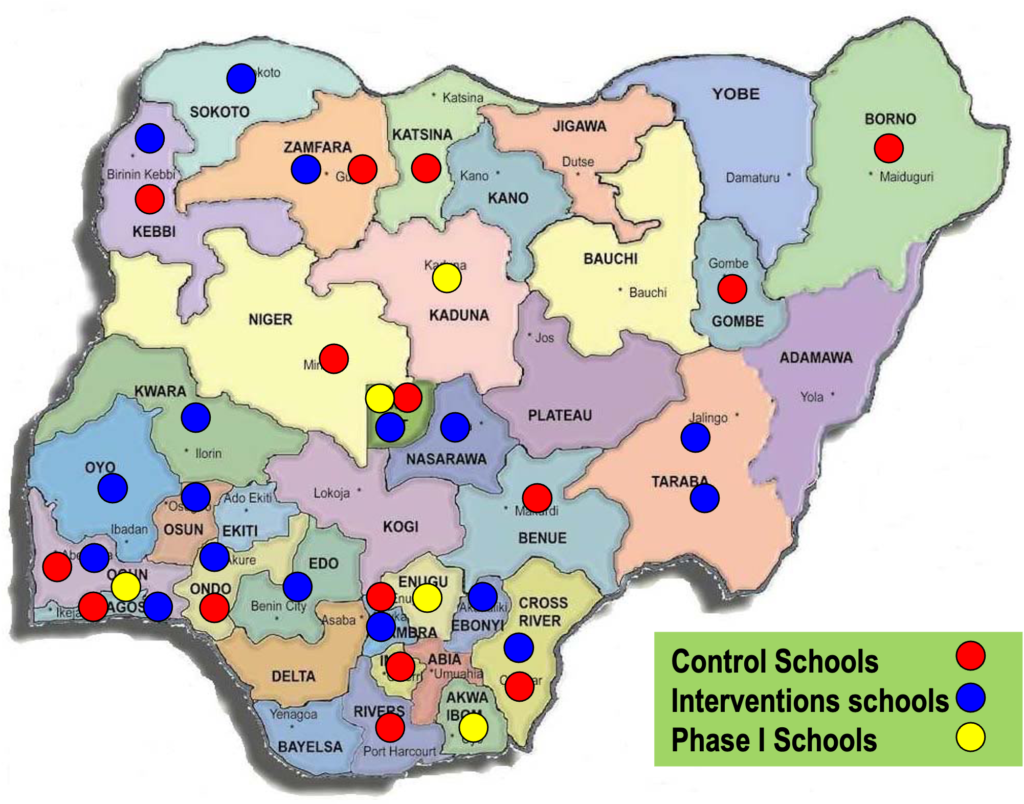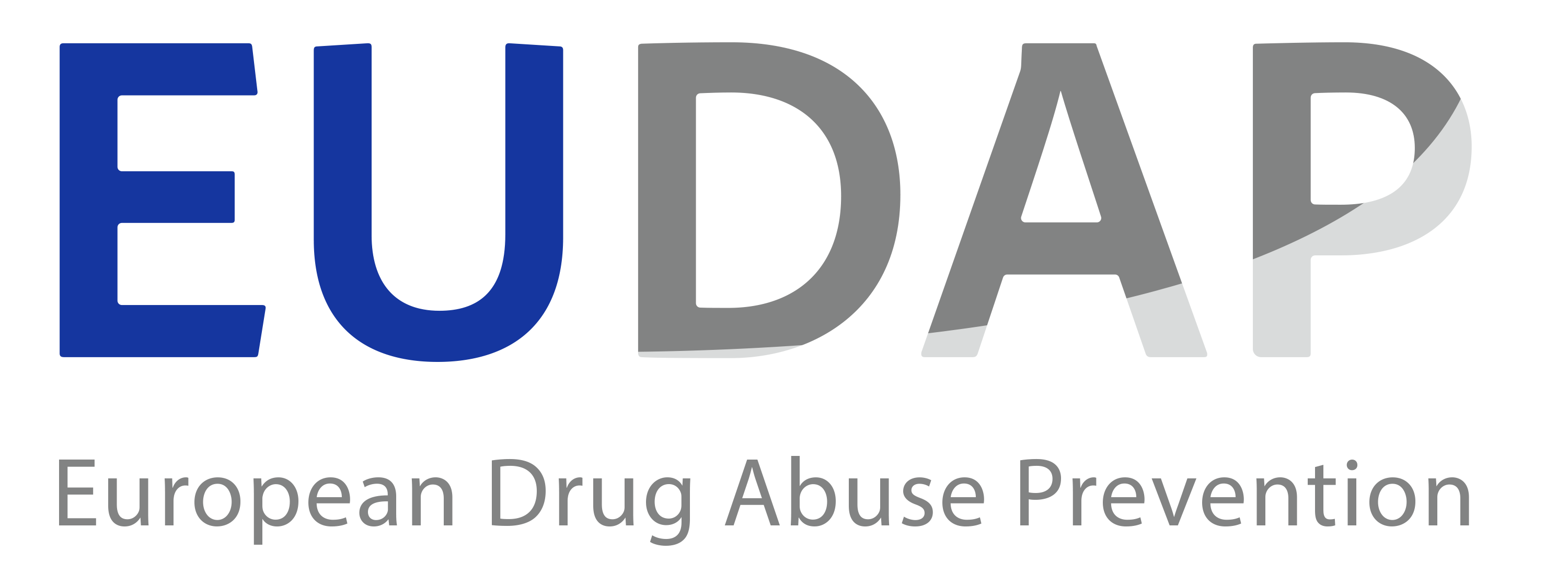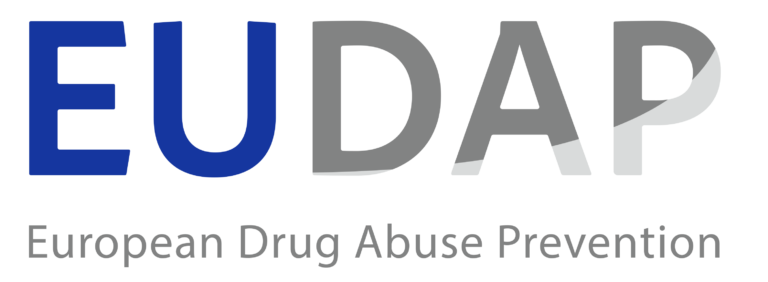UNODC Unplugged Nigeria – 2013-2016
In 2013, the United Nations Office on Drugs and Crime (UNODC) with the collaboration of the Government of Nigeria, implemented a large-scale project funded by the European Union to promote Nigeria’s efforts in fighting drug production, trafficking and use, and in curbing related organized crime including counterfeit narcotics and psychotropic substances, a key outcome related to supporting healthy lifestyles in schools, families and communities. The project was organized in partnership with Federal Ministry of Education (FMOE), the National Drug Law Enforcement Agency (NDLEA) and the National Agency for Food and Drug Administration and Control (NAFDAC). Within the project, the implementation and evaluation of the school-based prevention program “Unplugged” were planned.
In order to adapt the program to the Nigerian context, a pilot phase was conducted in May 2015. Input for adaptation of the program materials were assembled from monitoring forms, semi structured interviews and expert opinion. Surface adaptations concerned food, places, names, illustrations. In the layout a few African figures were introduced in pictures and drawings. Deep adaptations concerning cultural different perceptions or use of local data on prevalence were submitted for debate and approval.
The evaluation of the effectiveness of the program was performed through a cluster randomized controlled trial with two arms: Unplugged (experimental arm) and Usual Curriculum (control arm) and was conducted on the entire territory of Nigeria (7 Zones).


The randomization took place by zone. Number of schools to be randomized to intervention and control arms in each zone was decided based on the size of the population:
- 4 schools in North Central zone,
- 2 in Abuja Federal Territory,
- 4 in North East zone,
- 6 in North West zone,
- 4 in South East zone,
- 4 in South South zone,
- 8 in South West zone.
A pre-test survey was carried out in December 2015/January 2016 and 4078 pupils participated. The post-test survey was administered in between May/June 2016 and 3900 pupils participated. The anonymous questionnaire administered at baseline and follow-up survey was a shorter version of that used in the EU-Dap study and subsequent replication trials. For the evaluation of the process, a specific protocol was provided, including details on the forms to be used and the procedures to follow. OED performed the random allocation of schools, the data input, and the data analysis.
Results of the evaluation showed that Unplugged significantly reduced the prevalence of recent alcohol use in intervention vs control pupils. The program prevented progress and encouraged regress across stages of intensity of alcohol use. Negative beliefs, risk perceptions, and class climate mediated the effect of Unplugged on alcohol use. Unplugged was effective in preventing alcohol use improving beliefs, class climate and risk perceptions among Nigerian students. Fidelity of implementation increased the effectiveness of the program.
Research tools
Funding
The Unplugged Nigeria project was funded by the European Union (project FED/2012/306-744).


